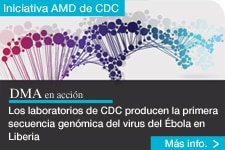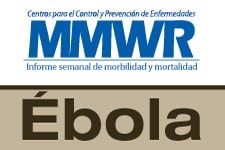Contraindications and precautions for ERVEBO®
ERVEBO® should not be given to people with any of the following:
- Known severe allergy, such as anaphylaxis, to any component of the vaccine, including rice protein
- Clinical evidence of a systemic infection or other acute intercurrent illness at the scheduled time of vaccination (e.g., oral temperature >38°C [100.4°F], systemic symptoms). Vaccination may be rescheduled at a later date if the conditions resulting in ineligibility are no longer present.
- Presence of any clinically significant medical condition, past medical history, pre-existing illness (e.g., acute malignancy, history of Guillain-Barré syndrome, history of neurologic disorder that may increase risk, active autoimmune disorder or immunosuppression) that may place the individual at an increased risk of a serious adverse event following vaccination
While pregnancy and lactation are not absolute exclusion criteria for receiving ERVEBO, live attenuated vaccines are generally contraindicated during pregnancy. Women of reproductive age should be counseled on the potential fetal risk(s) of vaccination. Determination of whether to receive the vaccine should be made on an individual basis, in consultation with a healthcare provider, based on the benefit/risk of vaccination against the risk of exposure to Ebola virus.
Laboratory and healthcare workers at risk for occupational exposure to Ebola virus (EBOV; Zaire ebolavirus) who receive ERVEBO must continue to adhere to recommended biosafety guidelines and infection prevention and control procedures. People responding to an EVD outbreak must wear recommended personal protective equipment and follow proper procedures to prevent infection upon contact with a patient with suspected or confirmed Ebola disease or contact with the patient’s body fluids, even if the responder received the vaccine.
Precautions
Among the 15,399 adult subjects vaccinated with rVSVΔG-ZEBOV-GP (the name used for the vaccine pre-licensure) during the clinical development of the vaccine, there were two reports of serious vaccine-related pyrexia and two reports of non-fatal anaphylaxis. Following vaccination, administering healthcare providers should monitor vaccinated individuals for signs and symptoms of hypersensitivity reactions. Appropriate medical treatment and supervision must be available in case of an anaphylactic event following the vaccine administration. Each vaccinated individual should be observed for a minimum of 30 minutes post-vaccination.
Vaccination with ERVEBO may not protect all individuals. Its safety and effectiveness have not been assessed in immunocompromised individuals. The vaccine may be less effective in immunocompromised individuals. To date, a small number of HIV-positive adult subjects have been vaccinated with rVSVΔG-ZEBOV-GP in the Partnership for Research on Ebola Virus in Liberia’s (PREVAIL) first study (PREVAIL I). Additional studies are ongoing to evaluate the vaccine’s use in HIV-positive individuals who are not severely immune-compromised. The risk of vaccinating immunocompromised individuals with a live virus vaccine should be weighed against the risk of Ebola disease.
Because ERVEBO is produced with rice-derived recombinant human serum albumin, precautions should be taken with individuals allergic to rice. Individuals with a history of severe allergic reactions such as anaphylaxis to rice protein should not receive this vaccine.
Attenuated VSV vaccine virus RNA has been detected by reverse-transcription polymerase chain reaction (RT-PCR) in urine up to seven days post-vaccination, in blood and saliva up to 14 days post-vaccination, and in fluid from skin vesicles up to 20 days post-vaccination. Transmission of vaccine virus through personal contact is theoretically possible. Healthcare providers administering vaccine should exercise appropriate infection control practices. Vaccine recipients should avoid:
- Sharing needles, razors, toothbrushes, eating utensils, drinking from the same cup, and open mouth kissing for two weeks after vaccination; if oral sores develop after receiving vaccine, vaccine recipients should avoid these activities until the sores heal.
- Contact and association with immunocompromised individuals, pregnant or breastfeeding women, and children less than 1 year of age for up to six weeks following vaccination.
- Exposing livestock to the recipient’s blood and body fluids for up to six weeks following vaccination.
Considerations for special populations
Pregnancy
There are no well-controlled studies of ERVEBO in pregnant women. Data available from human clinical trials with rVSVΔG-ZEBOV-GP are not sufficient to establish whether the vaccine poses a risk during pregnancy. In a randomized, unblinded vaccine study in Sierra Leone, there were no statistical differences in pregnancy loss among those who were vaccinated versus those unvaccinated. Likewise, there were no external congenital abnormalities among babies born to women who were part of the vaccine study.
The World Health Organization recommends the use of ERVEBO in pregnant and breastfeeding women in areas experiencing an active EBOV outbreak, in the context of rigorous research or through a compassionate use protocol. The risk of exposure to EBOV should be weighed against potential vaccine-related risk during pregnancy based on individual informed decisions.
Lactation
Data are not available to assess the impact of ERVEBO on women’s breast milk, its effects on the breastfed child, or on women’s milk production. The child’s development and health benefits of breastfeeding should be considered along with the mother’s clinical need for the vaccine and any potential adverse effects on the breastfed child from the vaccine or from the mother’s risk from or susceptibility to Ebola virus.
Older Adults
A total of 542 older adults received rVSVΔG-ZEBOV-GP during clinical trials of the vaccine. Although this was inadequate to determine whether the immune response in older adults (≥ 65 years) is different from younger participants, the FDA-approval of ERVEBO for prevention of disease caused by EBOV in adults (≥ 18 years) is inclusive of older adults without an upper age limit.
Vaccine adverse events
The most commonly reported injection site adverse events among the adults vaccinated with rVSVΔG-ZEBOV-GP during clinical trials were injection site pain (70%), swelling (17%), and redness (12%). The most commonly reported systemic adverse events following vaccination with rVSVΔG-ZEBOV-GP were headache (37%), feverishness (34%), muscle pain (33%), fatigue (19%), joint pain (18%), nausea (8%), arthritis (5%), rash (4%) and abnormal sweating (3%). A limited number of adult subjects received a second dose 28 days after initial dose; reactogenicity at the injection site and systematic reactogenicity were less severe after the second dose than after the first dose. The potential for previously not known, rare, serious events following vaccination may be possible. Administering healthcare providers should monitor individuals for signs and symptoms of reactions following vaccination. Appropriate medical treatment and supervision must be available in case of an anaphylactic event.
Some vaccinated individuals may experience arthralgia and arthritis after vaccination. In general, arthritis began one week after vaccination and resolved within a week after onset. However, some vaccinated individuals reported prolonged and recurrent arthritis symptoms. One post hoc analysis identified women and individuals with a medical history of arthritis to have a 2.2–2.8 times higher risk of developing post-vaccination arthritis.
Overall, reported vaccine-related severe adverse events (SAEs) were rare. Across 12 studies, out of 15,399 people who received the vaccine, three SAEs were judged to be related or possibly related to the vaccine: one febrile reaction, one anaphylactic reaction, and one influenza-like illness. An additional case of anaphylaxis was identified in data provided to FDA. All resolved without sequelae.
Limitations of vaccine effectiveness
The onset of protection and the duration of protection against EBOV following vaccination with ERVEBO is unknown and may not protect all individuals. Vaccinated individuals should continue to adhere to recommended infection control practices to prevent EBOV infection and transmission.

